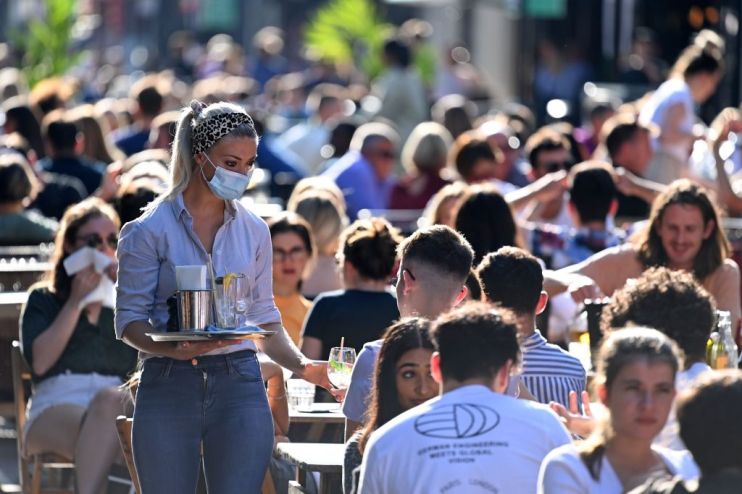UK on track for 200 Covid deaths a day based on current infection rate

The UK could be on track to have 200 Covid deaths a day by November if current rates of infection continue, according to the UK’s top scientific official.
Chief scientific adviser Sir Patrick Vallance said that coronavirus cases are currently doubling every seven days, while also revealing that only 8 per cent of Britons have any sort of immunity.
Vallance said in a live address that Covid cases are rising for all UK age groups, with 20 to 40 year olds seeing the largest increases.
The chief scientific adviser said this has led to an increasing number of hospitalisations.
He said that if the current trend continues that the UK will see 50,000 cases per day in a months’ time and 200 deaths a day a month after that.
Before the Open newsletter: Start your day with the City View podcast and key market data
“As the disease spreads, as it spreads across age groups, we expect to see increase in hospitalisations and unfortunately those increases will lead to an increase in deaths,” Vallance said.
It comes as health secretary Matt Hancock said yesterday that the country was at a “tipping point” and that new restrictions would be imposed if people did not follow the rules.
Chief medical officer professor Chris Whitty said that the country would have a “very serious problem” if “we do not change course”.
Whitty said that there needed to be a balance of considerations as a new lockdown would bring plunge an already ailing economy into a deeper recession.
However, the chief medical officer added that the virus would also likely spread faster as the year progresses.
“The seasons are against us,” he said.
“We’re now going into late autumn and winter, which benefit respiratory virus’ and its very likely they will benefit Covid as they do flu.
“We should see this as a six month problem.”
The pair also gave some more positive as news, as Vallance announced that there is a chance a vaccine could be available in small amounts by the end of the year.
He said that it looked like at least one of the ongoing trials would yield positive results, with the potential for a comprehensive vaccination programme by the first half of next year.